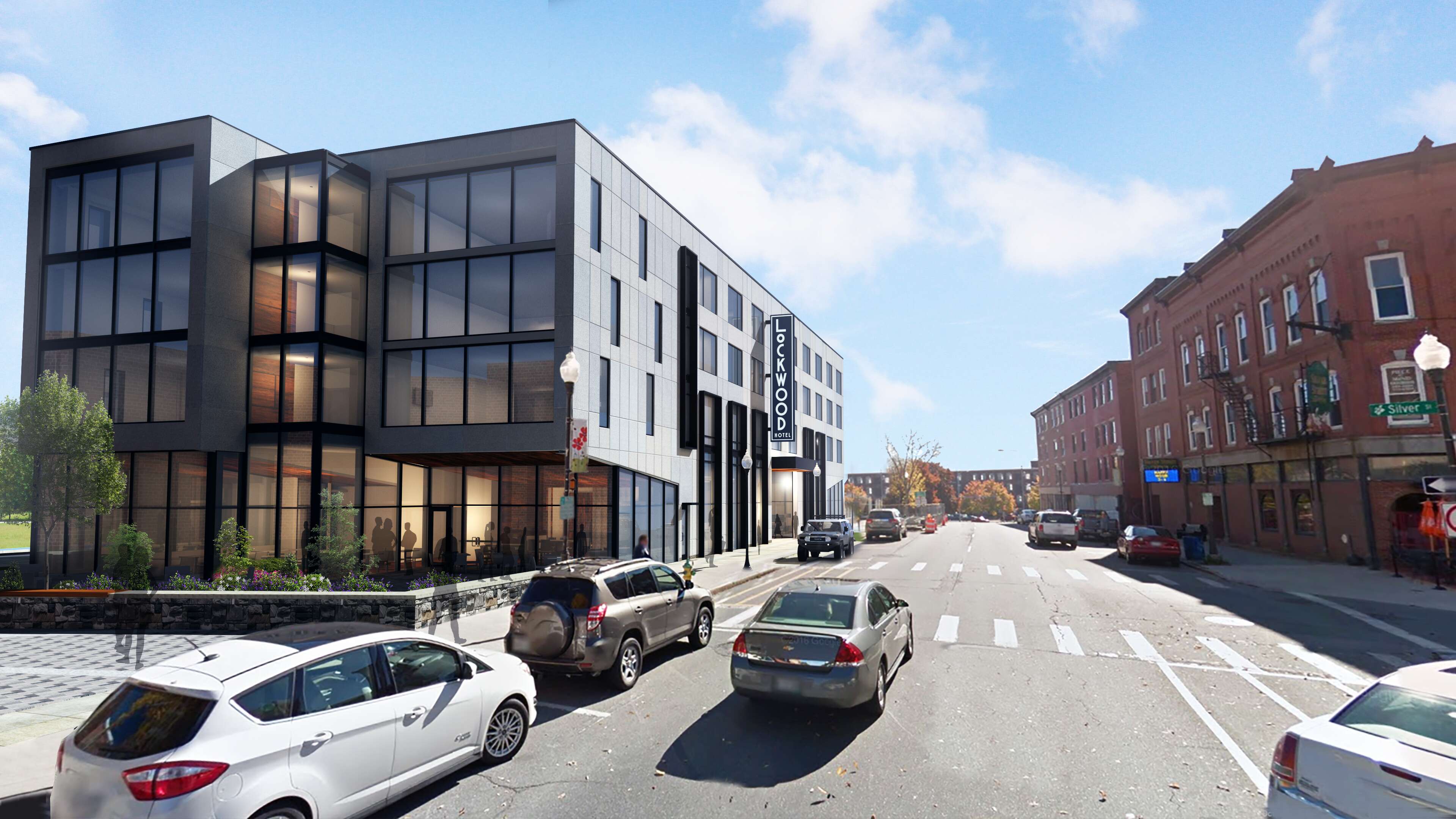
Inside the new Waterville Opportunity Zone 'megafund'
A new fund for the city’s downtown opportunity zone has been created by the Central Maine Growth Council to add investors and diversity to the money pouring into the city.
The growth council has formed what it says is the first economic development corporation-owned fund in New England for Waterville’s opportunity zone, which stretches along the Kennebec River from the city's northern border to south of downtown. The 1,000-acre site covers much of the downtown area.
The fund is one of a handful in the state overseen by a municipal or development entity to focus on total zone.
While the Central Maine Growth Council is a nonprofit, the fund isn't a nonprofit fund, said Garvan Donegan, director of planning and economic development at CMGC. Waterville's nonprofit fund is owned by the growth council, the only one in New England owned by an economic development entity, said Donegan.
While the growth council is nonprofit "Generally speaking, [the fund] is the same as all other qualified opportunity funds, and thus, can invest in the same types of projects," Donegan told Mainebiz.
A similar fund that's a partnership between the Easter Maine Development Corp., based in Bangor, and Acadia Capital Management, is also a public-private partnership. The difference between that fund and Waterville's, is that the economic development corporation owns the fund in Waterville's case, and for-profit ACM owns the fund that EMDC is part of.
There are 32 opportunity zones in Maine, established in May 2018, and 8,761 in the U.S. Money for development that aims to reap OZ tax benefits must be from recent capital gains and put into a fund designated for the zone within six months. The tax incdentive program is designed to help areas underserved by investment.
The fund must be used for development that will improve either property or a business, and generate jobs. The money isn't taxed until Dec. 31, 2026. The longer the property is held, the more the tax benefit.
At least 90% of the investment into the fund must be allocated to the opportunity zone, though as rules evolve, that may change to a smaller amount, experts have said. Federal estimates are $700 million in investment capital is available per zone in the U.S.
Donegan said the fund will add to the more than $125 million in recent investment in downtown Waterville, stimulate more direct investment into the city and bring “a more diverse array of investors, including small, mid-sized, and family-scale investors and businesses."

Range of expertise needed
Brien Walton, CEO of Acadia Capital Management, the firm partnering with EMDC, told Mainebiz earlier this year such funds should become a trend for opportunity zone development. He administers municipal megafunds in Lincoln, Baileyville and Calais.
“I was initially surprised that more town managers and economic development directors in Maine were not being proactive in taking ownership of their opportunity zones to help their citizens,” said Walton, who’s not involved in Waterville’s fund.
He said this week that opportunity "megafunds," like those in Lincoln, Baileyville and Calais, are not about the size, because there are dozens of funds that do multiple real estate projects in the same zone. The term “mega” is specific to the scope and capacity of the fund.
The fund must be specifically created to address the three critical objectives of the opporunity zone program — investing directly in businesses for job creation, investing in neighborhood revitalization and direct collaboration with the town or city to support regional economic growth beyond the target zone.
He said funds that focus on job creation, rather than real estate, better meet the purpose of the new tax law.
That focus requires a broad skill set. “Expertise in four distinct skill sets is required to fully understand this complex U.S. Treasury program,” he said. That includes real estate development; corporate taxation; venture capital; Treasury Department tracking and monitoring protocols.
“If one of those skill sets is missing, or the professional does not have experience in multiple states to understand the federal context, then it can be extremely difficult to know what the correct path should be,” he said.
He said economic challenges abound with zone management, particularly raising and deploying capital fast enough to meet the six-month deadline to invest after the fund is formed.
While the focus since the zones were first set up in May 2018 has largely been on developers and development, it’s really about investing.
"Forget about the emotion of a building site, it's what's better for investors," said Walton. "The whole premise [of the tax law] was getting money to go into the community and circulate.”
Therefore, it makes more sense to have one big fund in a zone rather than tying funds to a specific development. Making that even more vital is a new rule from April that allows an investor to pull money out of one project and put it into another project in the zone without penalty.

More appeal for Waterville investors
Waterville’s fund will be managed by the growth council, with Donegan as fund manager, with an assisst from he accounting firm Wipfli, which has offices in Augusta and South Portland. The firm has extensive opportunity zone experience.
The growth council will manage the legal, fiscal and operational aspects of the fund, reducing barriers to investment in the opportunity zone. The council also “employs its deep knowledge of the local economy to allocate capital to its highest and best use,” Donegan said.
Jim Cardosi, tax manager at Wipfli, said that the firm’s management of the fund will help investors “benefit from capital gains deferral and reduction, while those within the zone truly benefit from the guiding hand of CMGC’s involvement and interest in the fund.”
Local economic growth has boomed in large part to the completed and planned investment of over $125 million into downtown. Much of that is by Colby College. Beginning in 2015, the school bought and renovated several downtown buildings, constructed a mixed-use dormitory/retail building, just started construction on the Lockwood Hotel and is raising $20 million to develop a key downtown building into an arts center.
North River LLC also recently bought and is redeveloping the long-vacant 142,000-square-foot Lockwood Mill complex.
A variety of smaller developments have also followed these projects.
“This development pattern mirrors the investment that is possible under the Opportunity Zone framework, providing strong evidence for Waterville’s appeal to investors,” Donegan said.
Donegan said the opportunity zone focus on redevelopment of economically distressed areas and creating jobs also is a good fit for the growth council.
“The mission of CMGC is reflected in the fund’s investment guidelines, which favor projects yielding local community and social benefit,” he said.
Mainebiz web partners
Windows on the south end of the 14-20 Main Street block would enhance the value of the space with any use.














1 Comments